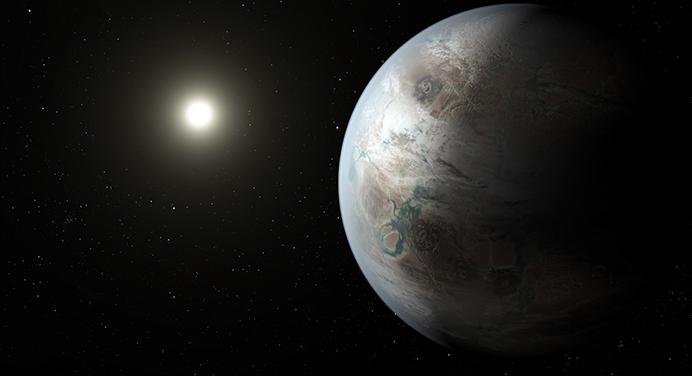By Beau Elliot
Did you know that a year on Earth used to be 400-plus days long?
We thought not. Meaning, who in the world would know that? Outside of some paleontologists and some astronomers and some geoscientists and some other forms of pesky scientific life. Why don’t they get real jobs? your inner Republican wonders.
But yes, a year on Earth used to take that long. Four hundred days, that is. Just think how long a Trumpster presidency would have seemed back then.
Back then would be hundreds of millions of years ago. How many hundred of millions of years? you wonder. Well, many. (Don’t try counting this number at home, or you’ll lose track of time and flambé the rice cooking on the stove, which will lead to problems with the landlord because of the heavy smoke streaks on the wall that refuse to leave and live somewhere else. Much like the hippie on your couch who slid in 16 months ago and is still, lumpily, there. Not to mention you have to throw the rice pot away, because who has the hundreds of hours it would take to scrub it clean? Time, like your favorite cat, pokes its pesky nose everywhere, it turns out.)
Those pesky scientists know how many millions of years, more or less, sort of, perhaps. The pesky scribes at the time couldn’t inscribe the events on goat-skin parchment, largely because there were no goats just yet, which put goat-skin parchment at a premium and much too expensive for any scribe.
So we’ll settle on 600 million years ago, for no particular reason.
For one thing, human beings hadn’t invented reason at that time, because neither the Universe nor the Trumpster had invented human beings yet. Anyway, 400 days to the year (much more time to procrastinate, human beings’ second-favorite activity) ended, because, without warning (that we know of), a big rock named Theia smashed into the Earth and created the Moon 4.5 billion years ago, according to UCLA scientists in 2016, who seem to be peskily insistent on making us look like fools, not that we need their help.
The Moon, it turns out, has had just enough gravity to create global tidal slosh over the years (that’s technical scientific jargon), and the Earth’s year is now 365 days, give or take various leap seconds and whether the Cubs win another World Series.
How big was that rock? you ask. No one knows for sure, but certainly bigger than the Trumpster’s ego, as hard as that shakes the firmament of your imagination.
But perhaps the big rock was the size of Mars. Which means you wouldn’t want to pick it up on the playground and pitch it at your pesky younger brother who keeps tagging along. Unless, of course, your name is Atlas, in which case you would pitch the big rock to home plate, then shrug when the umpire called it a ball.
Who would name a rock Theia? you wonder. (Man, do you wonder a lot. And by the way, it’s pronounced “Thay-eh.”) Her parents, of course, named her. As parents have tended to do for 200,000 years or so, often to the dismay of their offspring. Or even those born during spring.
None of this has anything to do with the Pauli exclusion principle or the Bose-Einstein condensate or the Trumpster’s Cuba policy. In case you were wondering.
And why do you keep referring to yourself as “we”? you ask. Some pretension to the British royalty?
Not by the light of our blue-green Irish eyes. It’s the middle of June, which signifies the rise of Gemini-ism. Someday soon, probably 50 billion years or so from now, Gemini-ism, and the Irish, will take over the world. Unfortunately, the Earth will have been fried like long-ignored cooking rice by the Sun’s going nova tens of billions of years previously.
Luck of the Irish, our Irish grandmother would say.







